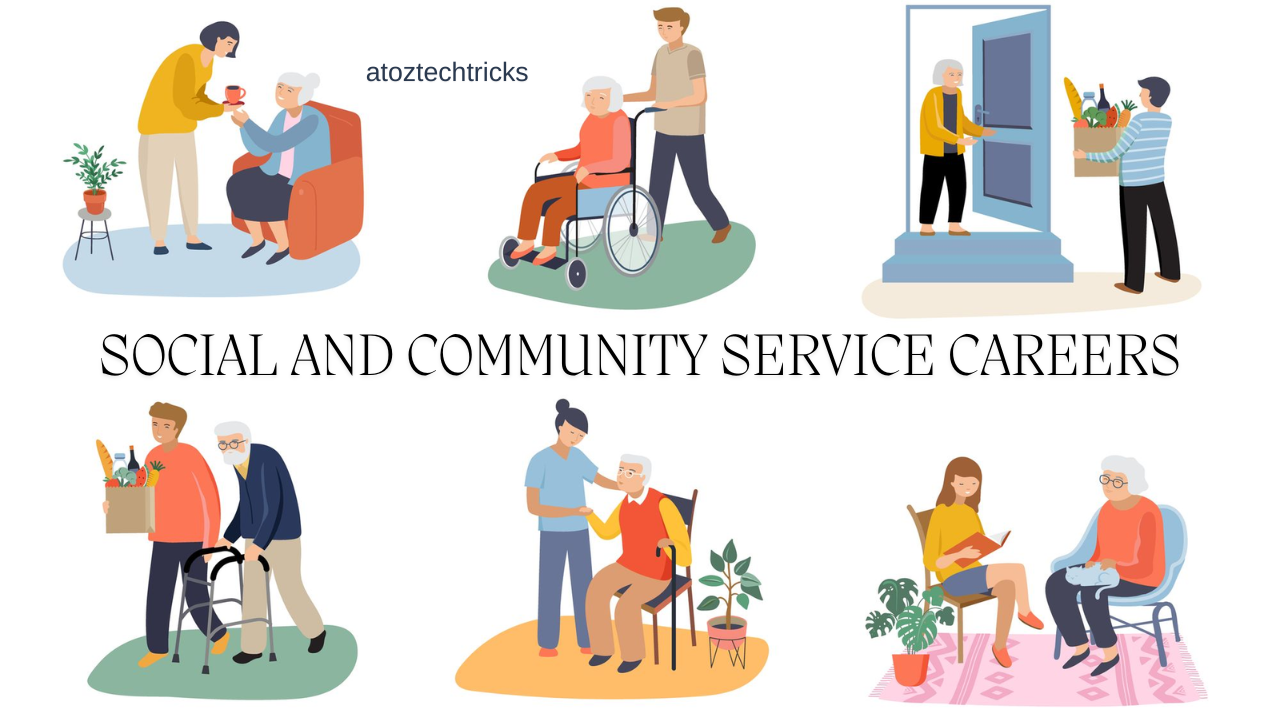Social and Community Service Careers: A Comprehensive Guide
In an era where social responsibility and community welfare are gaining prominence, careers in social and community service have become increasingly vital. These roles, which focus on helping individuals, families, and communities lead better lives, offer a unique blend of personal satisfaction and professional growth. This guide delves into various social and community service careers, highlighting their importance, the skills required, potential career paths, and the impact they have on society.
Understanding Social and Community Service Careers
The Importance of Social and Community Service Careers
Social and community service careers are integral to fostering well-being, equity, and support in diverse populations. Professionals in this field work in various settings, including non-profit organizations, government agencies, and private companies. Their primary goal is to address social issues, provide support, and advocate for vulnerable populations.
These careers are crucial for several reasons:
- Addressing Social Inequality: They tackle issues such as poverty, substance abuse, mental health, and domestic violence.
- Supporting Vulnerable Populations: They assist children, the elderly, the disabled, and marginalized groups.
- Promoting Community Well-being: They work to enhance community resources and support networks.
Advertising and Public Relations Careers: A Comprehensive Guide
Key Skills for Social and Community Service Professionals
To excel in social and community service careers, certain skills and attributes are essential:
- Empathy: Understanding and sharing the feelings of others is crucial for building trust and providing effective support.
- Communication: Clear and compassionate communication helps in understanding client needs and conveying information.
- Problem-Solving: The ability to address complex issues and find practical solutions is vital.
- Organization: Managing caseloads, documentation, and program activities requires strong organizational skills.
- Cultural Competence: Being aware of and sensitive to cultural differences ensures respectful and effective service.
Career Paths in Social and Community Service
Social Workers
Role and Responsibilities: Social workers help individuals and families cope with challenges in their lives. They work in settings like hospitals, schools, and community centres, providing counselling, advocacy, and support services.
Types of Social Workers:
- Clinical Social Workers: Offer therapy and counselling for mental health issues.
- School Social Workers: Address student behavioural issues and provide support for academic success.
- Healthcare Social Workers: Assist patients and families in navigating healthcare systems.
Education and Training: A Bachelor’s degree in social work (BSW) is the minimum requirement, though many roles require a Master’s degree in social work (MSW) and licensure.
Counsellors
Role and Responsibilities: Counselors help individuals overcome personal, social, and psychological challenges. They work in various settings, including schools, private practices, and community organizations.
Types of Counselors:
- Marriage and Family Therapists: Specialize in resolving issues within relationships and families.
- Substance Abuse Counselors: Assist individuals struggling with addiction.
- Career Counselors: Help clients with career planning and job search strategies.
Education and Training: A master’s degree in counselling or a related field is typically required, along with state licensure.

Community Service Managers
Role and Responsibilities: Community service managers oversee programs and services that benefit communities. They work in non-profits, government agencies, and private organizations, managing staff, budgets, and program development.
Key Duties:
- Program Development: Design and implement community programs and services.
- Staff Management: Recruit, train, and supervise staff and volunteers.
- Fundraising: Secure funding through grants, donations, and sponsorships.
Education and Training: A bachelor’s degree in social work, public administration, or a related field is common, with many roles requiring a master’s degree and experience in program management.
Public Health Social Workers
Role and Responsibilities: Public health social workers focus on improving community health through education, advocacy, and support services. They often work with government health departments or non-profit organizations.
Key Duties:
- Health Education: Provide information on healthy behaviours and disease prevention.
- Advocacy: Work to influence health policy and access to services.
- Case Management: Assist clients in accessing health resources and services.
Education and Training: A master’s degree in social work, public health, or a related field is typically required, along with relevant experience.
Film and Television Production Careers: A Comprehensive Guide
Probation Officers
Role and Responsibilities: Probation officers supervise individuals placed on probation instead of serving time in prison. They work to ensure compliance with court orders and support rehabilitation efforts.
Key Duties:
- Supervision: Monitor probationers’ compliance with the terms of probation.
- Counselling: Provide support and referrals to rehabilitative services.
- Reporting: Prepare reports on probationers’ progress for the court.
Education and Training: A bachelor’s degree in criminal justice, social work, or a related field is required, with many roles requiring additional training and certification.
Non-Profit Organization Roles
Role and Responsibilities: Working in non-profit organizations involves various roles, from direct service positions to administrative and executive roles. Responsibilities can include program coordination, outreach, and advocacy.
Key Roles:
- Program Coordinators: Manage specific programs and services offered by the organization.
- Development Officers: Focus on fundraising and donor relations.
- Executive Directors: Oversee the overall operations and strategic direction of the organization.
Education and Training: The required qualifications vary by role but often include a degree in social work, public administration, or a related field.
Challenges and Rewards of Social and Community Service Careers
Challenges
- Emotional Strain: Dealing with a client’s issues can be emotionally taxing.
- Funding Limitations: Many organizations face budget constraints that impact service delivery.
- High Caseloads: Managing a large number of cases can be overwhelming and affect the quality of service.
Rewards
- Personal Fulfillment: Helping others and making a positive impact can be deeply rewarding.
- Professional Growth: Opportunities for advancement and specialization are available.
- Community Impact: Directly contributing to the betterment of communities and individuals.

The Future of Social and Community Service Careers
Emerging Trends
- Technology Integration: Use of technology for case management, virtual counselling, and program delivery.
- Increased Focus on Mental Health: Growing emphasis on mental health services and support.
- Cross-Sector Collaboration: Enhanced partnerships between social services, healthcare, and education sectors.
Opportunities for Growth
- Specialization: Opportunities to specialize in areas such as trauma-informed care or digital mental health.
- Leadership Roles: Increased demand for experienced professionals in management and executive positions.
- Global Outreach: Growing opportunities for international work in global development and humanitarian aid.
Exploring Careers in Music and Performing Arts: A Comprehensive Guide
Social and community service careers offer a unique blend of personal fulfilment and professional development. By addressing social issues, supporting vulnerable populations, and fostering community well-being, professionals in this field play a crucial role in creating a better society. Despite the challenges, the rewards of making a tangible impact on individuals and communities are profound, making these careers both meaningful and essential.
Whether you are considering a career in social work, counselling, community service management, or any other related field, the skills and dedication required will contribute significantly to the well-being of those you serve. As these careers continue to evolve, they offer numerous opportunities for growth, specialization, and impact, making them a compelling choice for those passionate about helping others and improving communities.





Post Comment